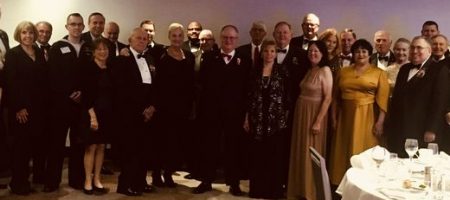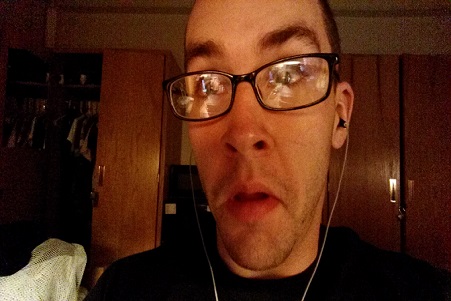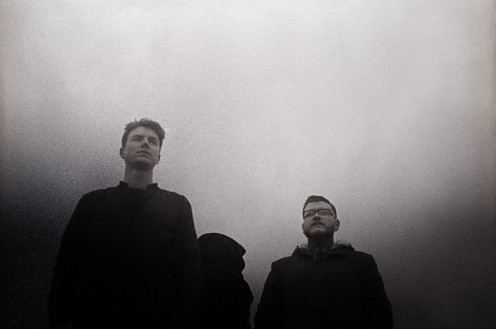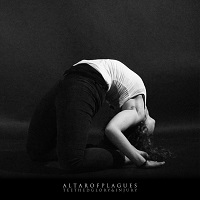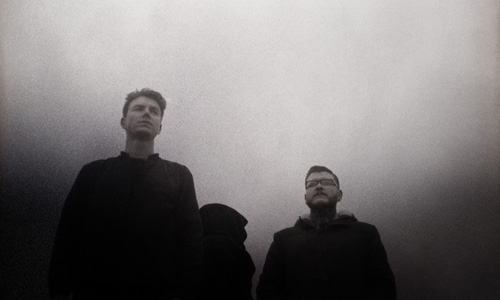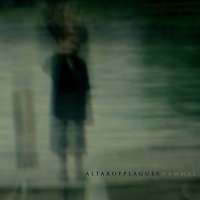Altar of Plagues – Killed By Death
Saturday, 30th March 2013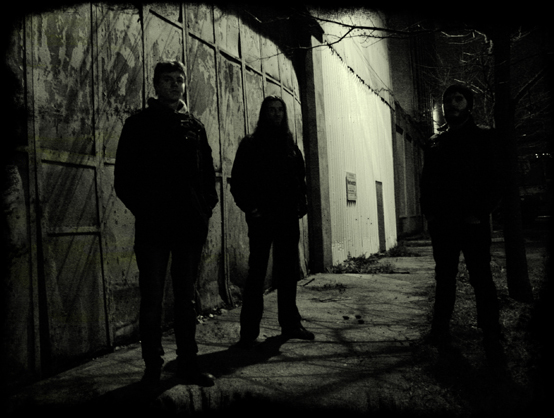
(This content originally appeared on Blistering.com)
Still riding the monster that is 2009’s brilliant White Tomb, Ireland’s Altar of Plagues have done what any good artist would do: They shifted their paradigm and became better. ‘Cause in the post-metal world, it’s quite easy to rest on one’s laurels and churn out album after album of Isis/Neurosis-aping good times, but that’s not how these Irishmen roll. Maybe it’s all the bangers and mash they consume…
With their latest and greatest Mammal, AOP strike an even deeper nerve, cutting away from the massive wall of sound produced on White Tomb for a spacious, alluring sophomore album. There’s lots of terrain for the band to operate, spewing forth some unbridled intensity on “Feather And Bone” (check out the 1:06 – 2:05 mark for perhaps the band’s most pulsating moment to date) and chilling atmospheres on “All Life Converges To Some Center.”Mammal isn’t an easy of a sell as White Tomb, but it revels in a dark complexity that begs for repeated listens.
In comparison to when we last snagged guitarist James Kelly in April of 2009, life is a lot different for Altar of Plagues. Now very much in-demand, the quartet now must shoulder an increasing tour load and an overflow of good press, but Kelly fielded our Q’s like an old pro. As he should – his band is at an unfuckablewith stage at the present time…
Blistering.com: Let’s rewind for a second and go back to White Tomb and of how well-received it was. How did that make you feel?
Kelly: It felt really good, but also very unexpected. We have never had any expectations for this act and the focus has always been on what it is that we feel Altar of Plagues is to us, rather than what it means to others listening. Creating music is something that we have always done for ourselves so any outside interest is always a surprise. We are happy to share our work with people, but we will always continue to live up to our own expectations and not anyone else’s. It is certainly a good feeling when people enjoy something that you have created, but I think that it is important not to take criticisms too seriously. One could over analyze criticisms and second-guess their own work. That sort of over analysis is something we do during the creation of the music, and distance ourselves from once the work is complete.
Blistering.com: Because White Tomb brought the band so much good exposure, what type of things did it lead to for you?
Kelly: It gave us the opportunity to travel further than we would have ever expected, to meet great new friends, all the while performing music that we love. As I said, we never hard any expectations and this band was created to serve as means by which we can express and engage with certain emotions in a creative way. It was not started as a hobby band with aspirations to tour or release music, it had a very personal focus from the onset.
Blistering.com: On a similar front, you signed a European deal with Candlelight. How did this come about and what do you hope to get out of it?
Kelly: They simply contacted us asking if we were interested in working with them. Considering that a number of the Candlelight releases are among the most influential to me, it was quite flattering to be asked. That said, I have the utmost respect for Profound Lore and we also wished to continue working with them. We were very fortunate to be able to work with both labels for the release of Mammal. I think that what I would perceive to be the differences between each label work together in a complimentary fashion. Ultimately it just made sense to work with a European label for European territories.
Blistering.com: And since White Tomb was such a success on a critical level, how did you approach the writing of Mammal?
Kelly: Honestly, it was no different to anything we have written previously. We simply focused on what it was that we wished to create, and what it was that we aimed to achieve with the album. Music often begins as ideas written on papers for us, and when it comes time to actually create the music, these notes are referred to and the process begins there. While we always know how we want a track to develop and conclude, we prefer let the structure almost create itself. This often happens by means of playing and sections over and over until we feel it is appropriate to move on. This has become quite instinctual, which I think is the product of the three of us being a part of this together for the past two or three years. Performing live has defiantly improved our interaction as players, and also helped us to better understand the music itself. The intense energy of live performance definitely found its way intoMammal.
Blistering.com: Needless to say Mammal isn’t White Tomb Part II; in fact, it’s a more challenging and dark listen. Was that one of your intentions?
Kelly: To a degree yes. Overall, we wanted Mammal to be much more natural then White Tomb, which was quite dense sonically and was more production heavy. I think that the overall intensity came from the subject matter and energy that was driving its creation. I’m also personally more interested in musical experimentation than sticking to safe, tried and tested sounds. Such experimentation was more prominent on Mammal than on any other of our releases. We would never make something with the purpose of challenging a listener, it’s all about what we want. With Mammal we challenged ourselves.
Blistering.com: The album is still extreme, but extreme in different ways. It feels like you’re using more open and spacey chords, which give it this inviting atmosphere. What were you trying to convey with this?
Kelly: We are not interested in repeating ourselves but of course as we are the same individuals who wrote the past music, there will always be certain elements that remain consistent. With Mammal we wanted to push the sound we have been developing since the band began, and in a lot of ways we feel that we achieved exactly what it was that we wanted to with that. In a sense, everything up to this point has been a stepping stone to what the band is now, much like Mammal will serve as a stepping stone to whatever the next work may be.
In terms of the atmosphere, I think that is a combination of the notation we chose, which is at times quite ‘spacious’ rather than a constant wall of noise, and the method by which we recorded the music. In the studio, it is as if the microphones just happened to be there while we created the album, as opposed to us getting involved in the tedious process of studio processes such as excessive takes. We wanted to maintain the emotional intensity by doing all of our vocals in one take, as to do otherwise would have been entirely dishonest. The lyrics are far too personal for us to act out the emotion, which would certainly be the case when doing multiple takes. We also wished to retain a more personal dimension, which we did by building atmospheres from field-recordings rather than from equipment. Each field-recording in Mammal can be traced to a time and place. It is important for us to retain an element of the work, even after we have shared it with others.
Blistering.com: Your early works are still ranked in with black metal, butMammal appears to take another step away from that. Is it safe to say you’ve shed any black metal leanings?
Kelly: I think that this is related to how the listener interprets the music. Black metal is the only metal that I really listen to. But I have never been able, nor wanted to, put a definite label on what we create. Such things only seem important to people trying to sell something. If we are black metal, then we are definitely not interested in attempting to recreate some of its best works. This has already been achieved. As Altar of Plagues is such a personal expression for us, it is important that the music is very much our own. What influences our music is unimportant, it is the final work that is most important. We have always drawn inspiration from an array of genres with the goals being to create a coherent work.
Blistering.com: Conceptually, what does Mammal deal with? As some of the titles indicate, does it revolve around the universe as a whole?
Kelly: Mammal is concerned with death. My death, and that of those important to me. It questions its significance and seeks a meaning. I have been struggling somewhat to articulate this motivation in interviews as it was just a very personal and natural thing. I also don’t expect something that is my own interpretation to make clear sense to anyone else. This was the first time that we took such a personal approach to the lyrics. I find female artists to be inspirational in this regard, as there is less of a tendency to shy away from the personal. The work of Emily Dickinson was extremely inspiring during this time. She has such a unique insight on death, capturing the despair but also the beauty.
Blistering.com: I read something on your website about people misinterpreting the female vocals on “When the Sun Drowns In the Ocean.” How did you stumble across the audio file, as well as this idea?
Kelly: Yes, a number of people have mistaken it as being something eastern. It is a keening, performed in Irish. Johnny [King, drums] studies Irish folklore at a university and he offered the idea of using the keening recording, which incidentally fitted perfectly with the albums concept. We very fortunate in that we were able to obtain an original recording of this act. This adds something very special to the album for us. It is consistent with both the album’s theme and our Irish heritage.
Blistering.com: What is your take on the recent “Doomsday” prophecies going on?
Kelly: I don’t even care enough to think about it to be honest. It appears to me that such people concerned with such things are more interested in death than in life. That may seem a contradictory statement coming from a person who just created a work about death, but Altar of Plagues is just one part of my personality. I can step away from it, so to speak. Religion is something that one embodies and to make a fixation on death a permanent part of one’s life is not happiness. I’m sure that earth would sooner collide with some gigantic asteroid, rather than a minister calculating the apocalypse.
Blistering.com: From your vantage point in Ireland, do the state of the world affairs (economically, politically, etc.) still seem as grim as they were two years when we spoke for White Tomb?
Kelly: Things don’t seem as bad now, which is ironic as nothing has actually changed. I think people have just adjusted. While I cannot comment on the rest of the world, I remember in Ireland there was a feeling that things were really going to change dramatically overnight. That just never seemed to happen. But that said, there are still some serious problems and it will take a long time to recover from this.
Blistering.com: Finally, what’s on the agenda for the rest of 2011?
Kelly: We have a number of shows booked for later in the year, which we hope to announce soon. We will also be releasing a split with French act, Year of No Light, which should be available around September. That features an unreleased track from the White Tomb recording sessions. It was actually an unusual experience for us, as we revisited and finished a track that was two years old.











